Week 5 of TEC: Success = MAX (cash/ burn rate * time it takes to iterate)
By True Ventures, July 12, 2010
Every Sunday, I find myself sitting on my bed thinking about this blog and wondering where the week went. Every week goes by so quickly that I am always caught off guard by the email reminders to update our blog. If I were to describe my summer experience thus far in two words, it would be “fun” and “challenging”. Most of the time I feel like a part time student with a full time job. I guess we were supposed to feel this way by design. After all, starting a company is not easy. One thing I have learned this summer is just how much hard work actually goes into starting a company. It is really easy to misperceive entrepreneurship as a sexy job where people get wildly rich. I, for one, was under this false perception. After all, we only hear about the success stories and never the failures. Working for Vurve during the day and building my own idea during the night (7 – 2am is plenty of time to do damage) has helped me come to realize that:
-> Entrepreneurship is not about the glory, most of the time it’s about doing the dirty work that others wouldn’t.
-> Entrepreneurship means if you are a builder you have to learn to sell and if you are salesmen you have to learn to build. And most importantly…
-> Entrepreneurship means you have to always be hustling and working harder than your competitors.
I remember once reading an interview of Murk Hurd, the CEO of HP. When asked, “why do you wake up so early?” He answered: “I wake up at 4am every morning because I can’t sleep knowing that my competitors in China are awake and working.“ I thought he was crazy, but now I know that a healthy dose of insanity is important for an entrepreneur.
Anyways, I can talk about entrepreneurship all day. I also wanted to share an important lesson I learned at this week’s Thursday meeting. Apparently there is a mathematical formula for success. Here is the argument: A startup’s ability to succeed is strongly correlated to the number of iterations it can go through. This means being able to release a product, then iterate on feedback, and release again as frequently as possible. It is so important to iterate quickly that “if you’re not embarrassed when you ship your first release, you have already failed.” This means success is maximized when cash, the numerator is as large as possible and the denominator burn rate and the time it takes to iterate are as small as possible. (To keep burn-rate low, I prescribe ramen) Therefore, Success is a simple math function that can easily be maximized with a couple of derivatives. I wish I had discovered this relationship earlier 🙂
Note: This was originally written by Summer TEC Intern Hanyin Cheng on the True Ventures TEC Program Blog. It was reprinted here with his permission.

